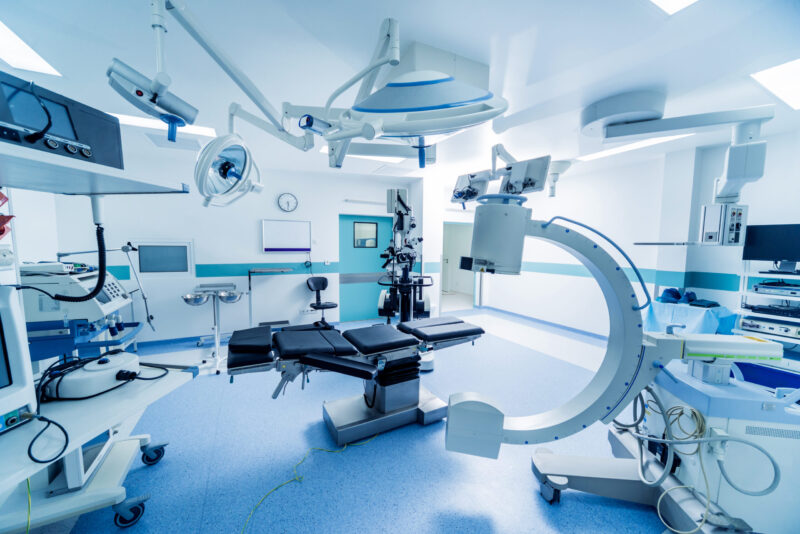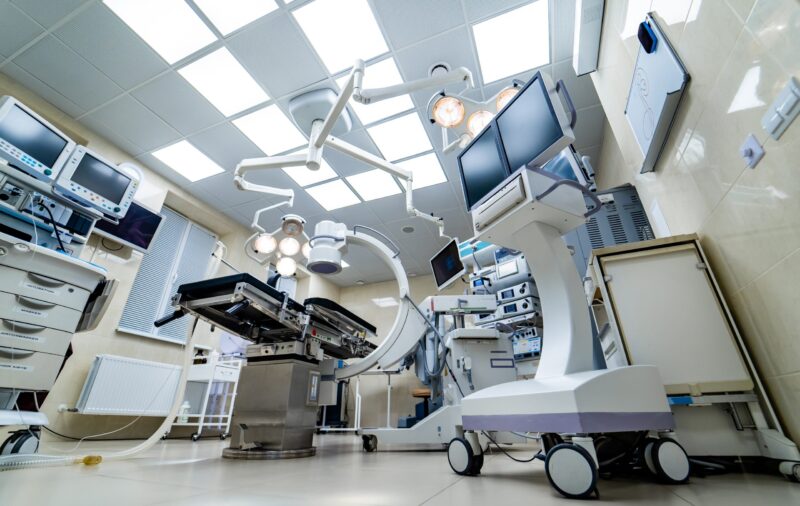
This site
is mobile
responsive

The evolution of Malaysia’s medical device industry shows strong growth, reflecting a mature and expanding ecosystem. For over a decade, it has strategically focused on high-growth sub-sectors such as Diagnostic and Point-of-Care, Minimally-Invasive Solutions, and Convergence Medical Technologies. This strategic move, now recognised as a National Agenda under the New Industrial Master Plan (NIMP) 2030, is supported by a robust network of linkages that attracts greater foreign investment from world-class players into Malaysia’s medical device ecosystem.
Malaysia’s comprehensive medical device ecosystem spans upstream R&D and component manufacturing (including consumables and non-consumables), midstream manufacturing assembly and related services such as sterilisation, to downstream sales, distribution and post-sales services. This ecosystem is further strengthened by supporting industries and services, various certification bodies including halal compliance, relevant testing facilities and key enablers from various government agencies. The industry structure is also supported by active associations such as the Association of Malaysian Medical Industries (AMMI) and the Malaysian Medical Device Manufacturers Association (PERANTIM), serving a diverse user base including public and private hospitals, pharmacies and wellness centres.

As Malaysia advances to become a significant player in the global medical device value chain, it is increasingly integrated into complex international supply chains. This integration brings inherent challenges, including global dependencies as demonstrated during the pandemic and geopolitical tensions that have limited access to raw materials and components. Ensuring continuity is now more critical than ever. To effectively address these issues, a multifaceted approach centred on agility and adaptability is key for sustaining growth.
The traditional model of globalisation is increasingly giving way to reshoring or nearshoring, enabling risk management by diversifying suppliers across regions and reducing reliance on single sources. The immense potential of data-driven forecasting, coupled with Internet of Things (IoT), is reinforcing the extensive supply chain networks.
Malaysia’s strong economic fundamentals uniquely position it as a global offshore hub for medical device players. The country’s robust domestic ecosystem enhances its attractiveness as a prime investment destination for global players. As of 2023, Malaysia hosts 29 companies in plastic components manufacturing, 92 in rubber component manufacturing, 28 in Electronic Manufacturing Services (EMS), and 135 in Engineering Supporting Services (ESS).
Malaysia continues to enhance its supply chain resilience while maintaining a strong focus on sustainable development. Strategic initiatives such as the NIMP 2030 and Industry4WRD provide a cohesive framework for national growth. Supply chain resilience is taking centre stage in Malaysia’s agenda, with the government recognising the importance of building a robust local supply chain. In Budget 2025, several fiscal and non-fiscal incentives support MNCs and domestic vendors in strengthening Malaysia’s supply chain ecosystem.
In light of collaboration, the recent launch of Johor-Singapore Special Economic Zone (JS-SEZ) accentuates Malaysia’s intention to deepen regional partnership for a sustainable business growth in ASEAN. The JS-SEZ promotes cross-border cooperation, offering tax incentives of up to 15 years for investments in the medical device industry, ranging from RM500 million to over RM1 billion. To encourage reinvestment by long-term investors, companies with an existing presence in Malaysia that relocate other medical device manufacturing operations into the country can qualify for a full income tax allowance on qualifying capital expenditure for a period of five years.
As the medical device industry continues to evolve, supply chain expansion will remain critical in advancing the sector and supporting Malaysia’s broader strategic goals. Therefore, building a robust, integrated, and technologically advanced local supply chain is the key to enhancing Malaysia’s competitiveness and resilience, especially in the high-impact growth sectors such as medical device products, ultimately positioning Malaysia as a premier investment destination in ASEAN.
To know more about the medical device industry in Malaysia, please contact Life Sciences & Medical Technology Division (https://www.mida.gov.my/staffdirectory/life-sciences-medical-technology-division/).
